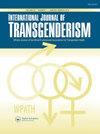Impact of the Gender Identity Law in Argentinean transgender women
Q1 Social Sciences
引用次数: 21
Abstract
ABSTRACT Background: In May 2012, collective efforts led to the enactment of a Gender Identity Law in Argentina. This is a particularly progressive law, based on human rights principles, as it is the first in the world to recognize a person's gender identity without any preconditions. However, studies that evaluate its impact on the transgender community (positive outcomes as well as barriers to implementation) have been scant. Thus, the following study investigated the impact of the implementation of the Argentinean Gender Identity Law on the living conditions, plus it explored stigma and discrimination (S&D) experiences of transgender women. Method: Two focus groups, with 20 transgender women, were conducted. Recordings were transcribed and a thematic analysis of the transcripts was performed according to the following categories: general perceived impact of the Law, work and education, security and civil rights, health services, and perceived differences among regions and provinces. Results: After the Law's enactment, participants mostly perceived positive changes, in general, and in particular domains such as education, health care, work, security, and civil rights. A general empowering effect on the community can be inferred. However, barriers to full implementation were identified, both internal and subjective (age, internalized stigma) and external (lack of trained professionals and public servants, reluctance to implementation in conservative provinces). Discussion: This study provides the first evaluation of the implementation and impact of the Gender Identity Law in Argentina from the point of view of transgender women. The empowering effect and the improvements achieved provide preliminary information on the importance of adopting this type of policy. Additionally, the barriers to be overcome and recommendations for the future are discussed.性别认同法对阿根廷跨性别妇女的影响
背景:2012年5月,阿根廷通过了《性别认同法》。这是一项基于人权原则的特别进步的法律,因为它是世界上第一个在没有任何先决条件的情况下承认一个人的性别认同的法律。然而,评估其对跨性别群体的影响(积极结果以及实施障碍)的研究很少。因此,下面的研究调查了阿根廷性别认同法的实施对生活条件的影响,并探讨了跨性别女性的耻辱和歧视(S&D)经历。方法:对20名跨性别女性进行两个焦点小组的调查。对录音进行了转录,并根据以下类别对转录进行了专题分析:法律的一般感知影响、工作和教育、安全和公民权利、保健服务以及区域和省份之间的感知差异。结果:法律颁布后,参与者普遍认为在教育、卫生保健、工作、安全和公民权利等领域发生了积极的变化。可以推断出对社区的普遍授权效应。然而,确定了全面实施的内部和主观障碍(年龄、内化的耻辱)和外部障碍(缺乏训练有素的专业人员和公务员、不愿在保守省份实施)。讨论:本研究首次从跨性别女性的角度对阿根廷性别认同法的实施和影响进行了评估。授权的效果和取得的改进提供了关于采取这类政策的重要性的初步资料。此外,还讨论了需要克服的障碍和对未来的建议。
本文章由计算机程序翻译,如有差异,请以英文原文为准。
求助全文
约1分钟内获得全文
求助全文
来源期刊

International Journal of Transgenderism
Social Sciences-Gender Studies
CiteScore
5.10
自引率
0.00%
发文量
0
期刊介绍:
International Journal of Transgenderism, together with its partner organization the World Professional Association for Transgender Health (WPATH), offers an international, multidisciplinary scholarly forum for publication in the field of transgender health in its broadest sense for academics, practitioners, policy makers, and the general population.
The journal welcomes contributions from a range of disciplines, such as:
Endocrinology
Surgery
Obstetrics and Gynaecology
Psychiatry
Psychology
Speech and language therapy
Sexual medicine
Sexology
Family therapy
Public health
Sociology
Counselling
Law
Medical ethics.
 求助内容:
求助内容: 应助结果提醒方式:
应助结果提醒方式:


